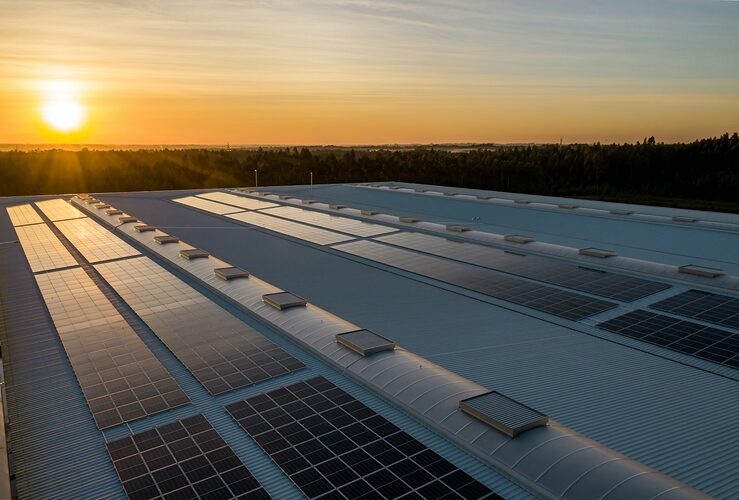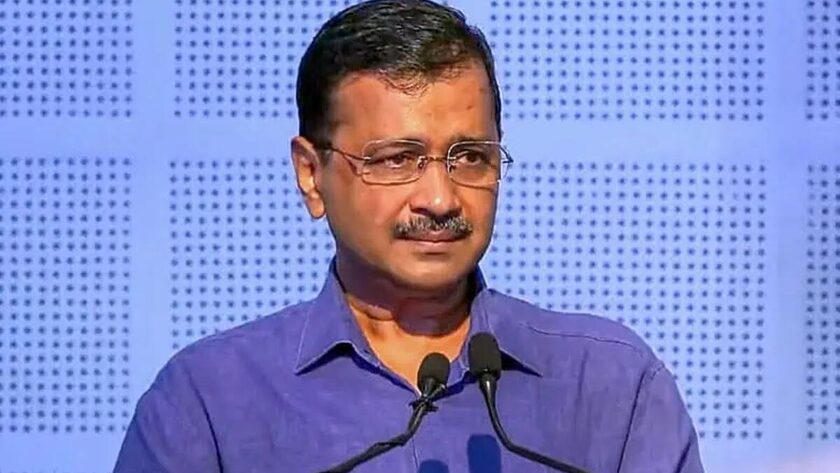India’s Ambitious Climate Change Plan
India is stepping up its game in the fight against climate change, with a bold commitment to achieve 50 per cent of its cumulative electric power installed capacity from non-fossil fuel-based energy resources by 2030.
Solar Power Revolution: India Overtakes Japan
In a remarkable turn of events, India has surpassed Japan to claim the title of the world’s third-largest solar power generator in 2023, as revealed by a recent report. The report, published by global energy think tank Ember, highlights India’s meteoric rise in solar energy deployment, ranking ninth globally in 2015.
Solar Power’s Global Surge
Solar energy witnessed a historic surge in 2023, contributing a record-breaking 5.5 per cent to global electricity generation. Aligning with this global trend, India significantly upped its solar electricity generation, accounting for 5.8 per cent of its total electricity production last year, as outlined in Ember’s “Global Electricity Review”.
The Significance of Clean Electricity
Emphasizing the multifaceted benefits of clean electricity, Aditya Lolla, the director of Ember’s Asia Programme, underscored its role in reducing carbon emissions, meeting escalating electricity demands, and decoupling economic growth from environmental degradation—an essential strategy in combating climate change.
Solar Power’s Unrivaled Growth
For the 19th consecutive year, solar energy retained its status as the fastest-growing electricity source globally, outpacing coal by a significant margin in 2023. India emerged as one of the frontrunners in solar growth, witnessing the fourth-largest increase in solar generation, trailing only behind China, the United States, and Brazil.
Global Impact of Solar Expansion
The global solar generation in 2023 soared to unprecedented heights, marking a sixfold increase since 2015. India’s contribution to this surge was remarkable, with solar’s share in its electricity generation skyrocketing from 0.5 per cent in 2015 to 5.8 per cent in 2023, signaling a promising trajectory towards cleaner energy.
India’s Climate Imperatives
With electricity generation accounting for nearly half of India’s annual carbon dioxide emissions, transitioning to cleaner energy sources is not just an environmental imperative but also a developmental necessity. India’s ambitious targets align with the global agenda to mitigate climate change impacts.
A Global Commitment to Renewable Energy
The momentum for renewable energy has gained significant traction on the global stage, culminating in a historic agreement at the United Nations’ COP28 climate change conference. World leaders pledged to triple the global renewable energy capacity by 2030, underscoring the collective resolve to address climate change.
Challenges Ahead: Meeting Capacity Targets
While India’s commitment to triple renewable capacity is commendable, meeting the ambitious targets requires substantial efforts. Annual capacity additions must escalate significantly to realize India’s renewable energy aspirations and propel the nation towards a sustainable future.












Keep up the fantastic work! Kalorifer Sobası odun, kömür, pelet gibi yakıtlarla çalışan ve ısıtma işlevi gören bir soba türüdür. Kalorifer Sobası içindeki yakıtın yanmasıyla oluşan ısıyı doğrudan çevresine yayar ve aynı zamanda suyun ısınmasını sağlar.
BWER is Iraq’s premier provider of industrial weighbridges, offering robust solutions to enhance efficiency, reduce downtime, and meet the evolving demands of modern industries.
As I website possessor I believe the written content here is really good, appreciate it for your efforts.
Well I really enjoyed reading it. This subject provided by you is very helpful for correct planning.
Are you considering investment opportunities in Iraq? BusinessIraq.com is your gateway to understanding the potential and risks associated with investing in this rapidly evolving market. We provide comprehensive coverage of investment laws, bureaucratic processes, and emerging business sectors ripe for growth. Our articles offer expert analysis on the Iraqi business climate, helping you identify profitable ventures and navigate potential challenges. From infrastructure projects to agricultural advancements, we highlight potential areas of high return, offering a nuanced perspective on both the opportunities and risks in various sectors. Learn about accessing funding, partnering with local businesses, and understanding the cultural nuances that impact the investment process.
Definitely believe that which you stated. Your favorite justification appeared to be on the net the simplest thing to be aware of. I say to you, I definitely get annoyed while people think about worries that they plainly don’t know about. You managed to hit the nail upon the top and also defined out the whole thing without having side-effects , people can take a signal. Will likely be back to get more. Thanks
Hello just wanted to give you a quick heads up. The words in your article seem to be running off the screen in Ie. I’m not sure if this is a formatting issue or something to do with internet browser compatibility but I figured I’d post to let you know. The layout look great though! Hope you get the problem fixed soon. Kudos
Hi my loved one! I wish to say that this article is awesome, great written and include almost all significant infos. I would like to peer extra posts like this .